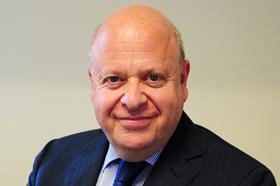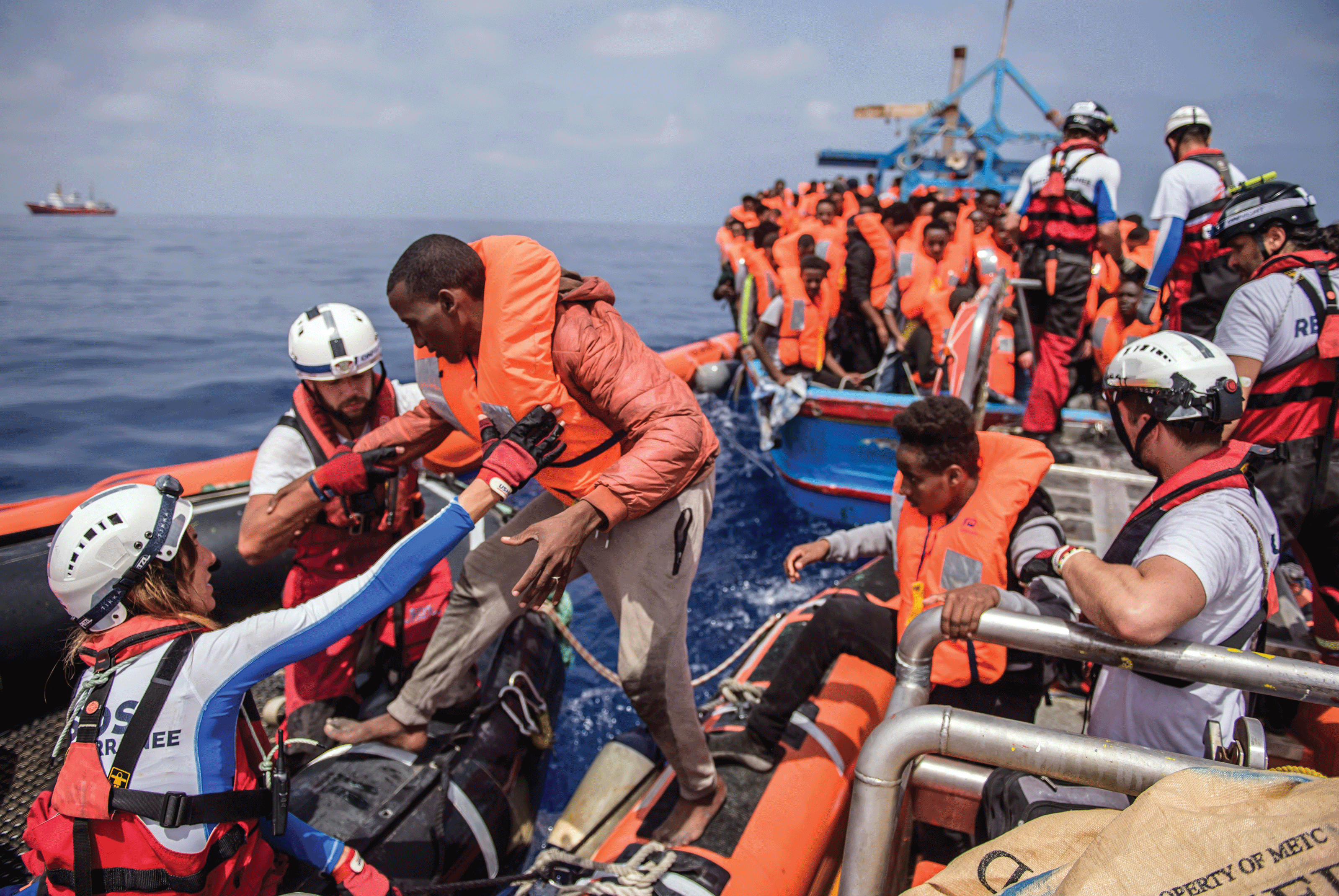State of the Union
Everyone now accepts that immigration is one of the defining issues of our time. It is acknowledged as one of the chief drivers behind Brexit, Trump and the future direction of the EU, and may still unseat Angela Merkel.

Over the last few weeks, there have been major developments on both sides of the Atlantic. In Europe, there was the refusal of the new Italian government to allow the boat Aquarius (pictured) to dock with 629 refugees. Refugees picked up by Italian coastguard vessels are allowed to enter Italy, but not those operated by third parties, and the Aquarius is operated by Médecins Sans Frontières and SOS Mediterranée, both humanitarian organisations. They had been asked, though, by the Italian government to take some of the 629 on board, which adds a bitter edge to the government’s later refusal.
Spain has now taken them in and France has agreed to accept some from Spain. The immediate crisis is resolved. But as a former Danish prime minister said recently, immigration is no longer a crisis but a permanent issue. The next peak will arise soon, probably in Germany where interior minister Horst Seehofer is demanding that Germany no longer admit migrants who have first entered the EU through other member states – which is nearly all of them. But chancellor Merkel opposes him in favour of a – so far unattainable – EU-wide resettlement policy.
In the US, the Trump administration has been enforcing a policy of separating children from parents when the parents are taken away for criminal prosecution, which has become routine when families are caught entering the country illegally. It is in the name of zero tolerance for breaking US law, but is essentially aimed at deterring migrants from coming in the first place.
Between October 2017 and April 2018, nearly 700 families were separated. Recently, there was publicity about a former Walmart store which is now a warehouse for nearly 1,500 boys aged 10 to 17 who were caught crossing the border illegally. New tent cities are being built for similar children. There was such outrage in response that the president eventually reversed the policy.
But what have these things to do with lawyers?
Starting with the US, there are numerous organisations offering legal advice to the immigrant children in Texas, including one run by the American Bar Association (ABA) called the ProBAR Children’s Project.
As the ABA says: ‘The children… are among the most vulnerable individuals in need of legal representation in the US today. They are separated from family and detained in remote facilities where they will eventually face removal proceedings in immigration court. They range in age from newborns to 17-year-olds. Most do not speak English and have limited education. Many are victims of violence in their homes, their communities, or during their journey to the United States.’
Of course, it is easier for the ABA to act because it operates within a single country and only one of the country’s two borders is affected (albeit a very long one).
Within the EU, however – to return to the Aquarius and its 629 refugees – matters are more difficult because the position is more fragmented. There are obviously lawyers and organisations assisting migrants. For instance, on the island of Lesbos there are several bodies that offer legal assistance to the refugees trapped there, including one launched by the Council of Bars and Law Societies of Europe and the German Bar Association (www.europeanlawyersinlesvos.eu).
But these organisations are, by and large, stationed there and the European migration problem is a moving target. This year, for instance, more than 23,000 people have reached Europe by sea, with 42% arriving in Italy from Libya and the remainder divided between Greece from Turkey (38%) and Spain from Morocco (20%), according to the UN’s International Organisation for Migration. Italy and Spain therefore make up nearly twice Greece’s amount.
The EU gives a huge amount of money to resolve the problems thrown up by migration, but very little aimed at lawyers, despite our being in a position to provide vital assistance. It does give money, though, to the European Lawyers Foundation to train lawyers in EU migration law, but it should do more generally. It should provide a comprehensive legal solution.
There should be a properly resourced EU mobile legal aid clinic, moving from hotspot to hotspot as need arises, to ensure that migrants, and particularly child migrants, are appropriately advised by expert lawyers. It will not be cheap, because interpreters need to be provided, as well as lawyers versed in the law of the country of entry.
But this is essential if the EU is to remain true to its humanitarian principles.
Jonathan Goldsmith is Law Society Council member for EU matters and a former secretary general of the Council of Bars and Law Societies of Europe. All views expressed are personal and do not necessarily reflect the views of the Law Society Council




























No comments yet